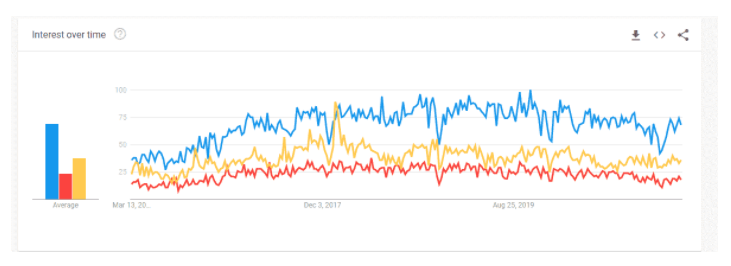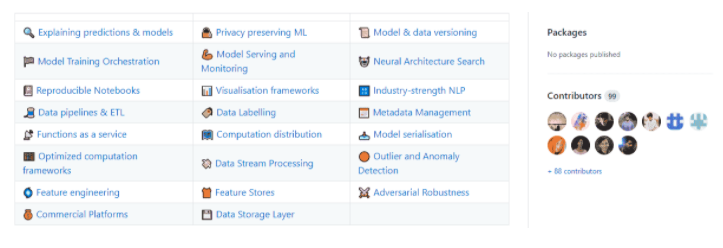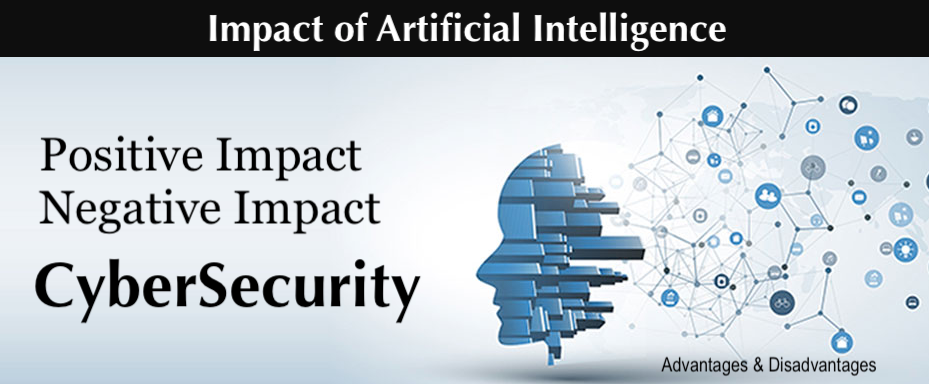Impact of Artificial Intelligence: Good evening to you from the United States. The snow covered my car this evening and I cant go out to meet up with friends. Meanwhile, I’ve just been off work and have been planning to go to the gym for decades.
Today seems to be the ideal day. Except I don’t have no idea where the nearest gym is; just like I said, ice covered everywhere. However, I took out my mobile phone, open Google Maps, and type in the word “gym.” Why? Because, I need to burn some steam.
So, in a matter of seconds, Google returns a list of local gyms. But it doesn’t stop there. I choose the first option on the list, and it now displays a range of choices, including the fastest path depending on whether I am commuting by foot, private car, or public transit.
I’m not sure if this is even feasible. What Is Artificial Intelligence’s Effect on Cybersecurity?
How does Google know so much about my neighbourhood? Is it likely that the CEO paid a visit and requested a search of the roads and gyms?
That, my friends, is artificial intelligence in motion. With that in mind, what is the Impact of Artificial Intelligence?
Trending Security Articles
- DNS Spoofing- How To Prevent DNS Cache Poisoning
- Policy & Cloud Security Compliance Standards.
- How to Avoid DNS and DNS Spoofing Poisoning
- 9 Potential Threats hindering the Promotion of Cloud Computing Industry
- Cloud Computing and Enterprise Computing faces the same Security Threats
Artificial intelligence has infiltrated nearly every aspect of our lives today, making life considerably simpler. In fact, here are some other places where AI will be hot in 2021/2022.
We’ll look at how artificial intelligence has affected cyber security in this post.
While we’re at it, we’ll talk about how AI has been used in cyber defence to make more stable networks, as well as how AI has made protecting software much more complicated.
By the end of this article on artificial intelligence’s effect on cyber security, I hope you’ll have a better understanding of the role AI can play in cyber security in 2021.
Artificial intelligence simply refers to a machine’s ability to emulate human-like behaviours such as learning and decision-making. It is, however, a very simplified concept. If you want to learn more about AI, read my article where I describe it (along with how to get started).
So let’s get this party underway.
Advantages of Cybersecurity in Artificial Intelligence
In today’s world, artificial intelligence (AI) is commonly used to successfully combat some of the most common cyber security challenges.
A lot of vulnerability identification and thwarting has become simplified thanks to software that can benefit about their surroundings.
(Cue cough). The Impact of Artificial Intelligence can make you cough; truly!!!
Hackers will simplify their attacks using the same technology.
Let’s start by looking at how artificial intelligence has helped cybersecurity.
1. Detection of Threats
The standard job description for a cyber security engineer is as follows:
Detect an intrusion/attack, interrupt it, and bring things back to normal without disrupting the business’s day-to-day activities. Basically, the management staff at the top of the building should be totally unaware that this has happened (pun intended).
That’s an oversimplification, so you get the picture.
How has AI affected our ability to detect threats before they cause harm?
Machine learning, a subset of artificial intelligence, has been used by cybersecurity engineers to classify, interpret data, and spot threats early on, until they can manipulate device weaknesses.
Machine learning provides computers with human-like knowledge, allowing them to learn and respond to new situations based on examples, results, and previous experiences.
When this superpower is triggered, the computer will detect threats simply by observing anomalies. And it does so with a razor-sharp degree of accuracy.
It also doesn’t need to take a caffeine break or engage in small conversation with coworkers since it’s a computer. As a result, it’s on the lookout 24 hours a day, seven days a week. Since engineers are individual, this would undoubtedly outperform a team of 100 security engineers.
As a result, even though there is a sudden increase in hazard volume, it is already observed.
As you can see, AI has had a positive effect on cyber security threat identification.
It specifically discusses the reactive essence of cyber defence, in which engineers sit back, drink black coffee, and wait for an intrusion to occur before responding…
2. Authentication
What is the password to your Facebook account?
No, seriously. Please tell me. Isn’t it possible that you’ve been using the same password for years?
It might also be the same password you use for your internet backup account, Gmail, and everything else in between.
I totally understand.
I’m in the same position as you are. We’re still advised to use complex passwords. That’s not so. I still advise my coworkers to use solid passwords that contain a combination of numbers and letters, as well as caps and special characters.
So who would remember a password like that? It means you’ll have to rely heavily on password protection software to keep track of your passwords. That’s why passwords are such a convenient target for hackers: all it takes is a couple of guesses and they’re in.
Face ID (Detection and Identification)
The Face detection is one of the most important developments in data security when it comes to authentication and password protection.
Seriously, Face recognition was hit-or-miss at first. This is so because a shift of hairstyle might indicate that it wasn’t you, and your computer would refuse you entry.
That is, before now.
Artificial intelligence is also being used by software developers to improve and improve facial recognition technologies. Using your face to unlock your system is no longer a pain in the neck.
Face ID, which is used on Apple’s iPhone X smartphones, is a brilliant example of face recognition.
Face ID improves biometric verification by analysing the facial expressions with infrared sensors and developing a model based on core associations and patterns using machine learning and neural networks.
To tell you the truth, one big bonus is that this artificial intelligence-based programme operates under a range of lighting environments and can adjust for modifications such as facial hair formation, hairstyle changes, and even wearing a hat.
In reality, Apple believes that with this artificial intelligence technology, the odds of you opening your computer with a different face are one in a million.
So, obviously, AI has saved the day when it comes to login thefts and other data security threats.
3. Behavioural Analytics
Behavioral analytics is a term that refers to the study of human behaviour. You don’t spend much time on Twitter or Facebook.
Frequently, after 5 p.m., you log in for a few minutes, browse through your feed, like one or two photographs, and then log out until the next day.
Then one day, this you appears, having signed in at 5 a.m. and actively submitting friend requests and texting contacts via messenger. And, almost out of nowhere, Facebook logs you out and sends you an email telling you that there has been suspicious behaviour on your account.
As a result, your account has been temporarily disabled for your protection.

AI is Fighting Hackers to protect online Users – Impact of Artificial Intelligence
Artificial intelligence is being discussed at work as a way to thwart hackers in their tracks before they do serious harm.
Thanks to artificial intelligence and machine learning, behavioural analytics is another major addition to data security that is used to nip traditional network security risks in the bud.
What method does it use to do this?
A computer will watch, understand, and then construct a consistent pattern of your behaviour based on how you use your computers or online channels using machine learning algorithms.
And, as we saw at the outset, these habits could include things like your login times, scrolling styles, and even your IP address.
The AI algorithm then takes a seat, leans back, crosses its fingers, and stands watch… I’m keeping a close eye on your account.
It cuts the control if it senses any action that deviates from the patterns it has developed through unsupervised learning.
ML algorithm malfunction
Anything as basic as a sudden rise in typing speed might cause the ML algorithm to malfunction, and behaviour could include:
Your account will be briefly suspended, flagged for human inspection, or completely disabled. See it in a list;
- temporarily suspending your account,
- flagging it for a human review or
- permanently disabling it.
Consider a scenario in which this will be beneficial.
Security information for sale on the dark web – Impact of Artificial Intelligence
A security breach occurred, which was compounded by a huge login theft of the personal accounts.
On the dark web, this information is for sale online. An attacker obtains your Facebook account, for example, logs in, and attempts to defraud your peers or followers. This AI algorithm, which was learned using machine learning, is capable of stopping this from being something.
As can be seen, artificial intelligence saves the day once more.
Disadvantages & Challenges of Artificial Intelligence in Cyber Security
Artificial intelligence’s approaches to cyber security are, for the most part, sincere and important.
Having said that, there’s a good chance that black hat hackers will be able to weaponize AI technology like machine learning and deep learning, allowing them to expand their attacks to a more dangerous level.
You might now be perplexed by the words I keep tossing around. If you want to know the difference between these technologies, check out this AI vs ML vs DL comparison.

According to the Google trends screenshot above, these three words have been consistently trending for the past five years.
Apart from that, there is already a significant difference between AI’s philosophy and its practicality for small businesses.
Is it a safe haven for major tech?
Let’s take a look at some of the cyber security risks and problems that AI faces.
4. High Operational Costs
Putting in place an AI-powered cyber protection solution is prohibitively costly.
No, seriously. That’s why, while it’s a top priority for large tech firms that still make billions of dollars a year, it’s almost an afterthought for small to mid-sized enterprises.
Allow me to demonstrate.
To start with, it’s very difficult to find highly qualified artificial intelligence engineers with expertise in cyber defence. And this is because AI is a very specialised field that necessitates a great deal of time and persistence in terms of study, observation, tests, and just being smart in general.
You should guarantee that not many people are taking that path simply to make a living. Furthermore, you spend an arm and a leg in wages as you find them. Artificial intelligence is currently ranked as one of the highest-paying tech jobs. High prices, according to 47% of SMBs, are preventing them from adopting it.
Implementing practical machine learning algorithms
As if it wasn’t bad enough…
Implementing practical machine learning algorithms that can deliver real outcomes necessitates a large amount of computational power. As a result, building a data centre with super-fast computers would entail a large initial investment.
Yeah, and there’s something more.
To self-train, understand, and forecast and make decisions, machine learning models need a vast volume of data to feed on. Where does a startup get all of this information?
As you can see, while AI has given us a fantastic tool for combating cybercrime and attacks, it has also set the bar too high, drawing a line in the sand as to who can and who cannot use it.
You are left exposed if you are unable to put it into practise. When an assault occurs, the only response is to adopt a knee-jerk reaction.
Check out the next challenge and see what I’m talking about and more.
5. Mutating Malware
Malware is evolving everyday. The open-source approach to AI is one of the reasons it has developed so rapidly.
Many of the artificial intelligence software, databases, and templates are open source and free. These resources can be accessed and used by anyone with a computer and an internet connection.
To begin with, this is a positive thing because the open-source movement has created some incredible resources to help advance this field.
So, what exactly is the issue?
These libraries can also be downloaded by malicious hackers.
For well-intentioned consumers, they are not a monopoly. Worse still, these malicious hackers may be highly trained AI engineers and computer security professionals who have recently lost their work.

They understand how the mechanism operates and are in the perfect position to exploit the shortcomings.
Cybersecurity threat identification scenario
Let’s look at a threat identification scenario.
I may create a device that scans, detects, or predicts attack probabilities based on those patterns using machine learning models. So, here’s what you’d do. To avoid being detected by the native AI-powered threat identification, one can create malware that can learn from the device it is installed on and mimic the user’s actions.
Via machine learning, the malware will mutate and adjust to mimic its host’s behaviour. Meanwhile, it’s sending confidential information to a remote server in preparation for a massive attack until enough data is obtained.
Set a robber to trap a thief, to say the least.
It’s one of the most noticeable aspects that AI has had a negative effect on cyber security.
Conclusion of the Impact of Artificial Intelligence
It is evident that artificial intelligence (AI) has played a major role in making cyber security attack protection both simpler and more predictable.
And for cyber security experts and penetration testers like me, who struggle with confusion, dangers, challenges, and the fear of them on a daily basis, this is a fantastic thing.
Ordinary consumers, on the other hand, are less optimistic.
Many people are worried about the increasing trend of technology and whether it will eventually replace human decision-making.
However, the positive aspects of AI apps make it unstoppable at the moment.
Recommended Articles that relates the Impact of Artificial Intelligence
- Working Safely from Home – Online Security Measures in this Pandemic
- Importance of Web App Security over the Increasing Web Application Attacks
- Hybrid Cloud Security Puzzle: Integrated Solutions for Cloud Computing
- Make Sure Your Security Policies Survive the Transition to the Cloud
- Best Methods to Improve Information Security in Companies
- Healthy Ways to Guarantee Public Cloud Security: Best Practices & Guidelines
It’s a lucrative career path, and strategic thinking, data scientists, and problem solvers are flocking to help create sustainable technology.
If you want to try your hand at AI to see what you can come up with, I’ve put together a list of some of the best FREE tools for learning AI in 2021 to help you get started.
This tools will not only give you the theory you need, but they will also give you a variety of practise projects to help you remember what you’ve learned.
What are the chances? You may be able to offer a solution to some of the challenges that clumsy AI implementations have posed to cyber security in the end.
Have you ever used an AI application? Did you see any Impact of Artificial Intelligence?
What are your thoughts on artificial intelligence’s position in modern society, especially in terms of cyber security?
And let us know what you think of the Impact of Artificial Intelligence in the comments section below.
More article for Next week
- positive impact of artificial intelligence
- impact of artificial intelligence in everyday life
- negative impacts of artificial intelligence
- benefits of artificial intelligence
- impact of artificial intelligence on society pdf
- disadvantages of artificial intelligence
- risks of artificial intelligence
- negative impact of artificial intelligence on jobs







